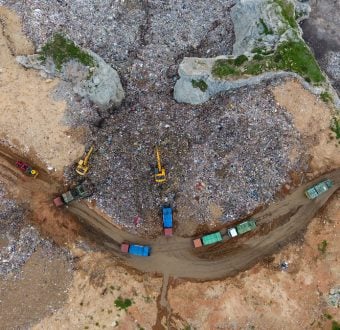Supermarkets that profit from tuna sales have a responsibility to ensure that their policies do not worsen human rights and environmental impacts down their supply chain.
How do you like your tuna sandwich? Lots of mayo? A sprinkle of salt and pepper? Some red onion, celery, capers, lemon juice, dill, and parsley? Hold the mustard! How about canned tuna made with human rights abuses and slave labor?
Yes… That’s right! Your canned tuna picked up from your favorite retailer at the bargain price of 3 for 1 most likely has human rights abuses and slave labor as unlisted ingredients. I’m sure you find that very hard to swallow, and so would most people…if they were aware of this issue.
Greenpeace USA’s latest report, “The High Cost of Cheap Tuna: US Supermarkets, Sustainability, and Human Rights at Sea” finds all 16 retailers surveyed to be failing miserably on ensuring their tuna supply chains are free of exploitative labor practices such as debt bondage and physical abuse. That’s a lot of tainted tuna!
2021 Tuna Scorecard

Your local corporate grocer may not directly employ the migrant fishers who spend months or even years at sea hauling thousands of pounds of tuna for over 16 hours a day, but their sourcing policies and business practices set the tone for the entire industry. In 2018, tuna vessels worldwide netted $11 billion. Yet grocery stores earned almost four times that amount from their sales of tuna products in the same year.
So, what’s the bottom line? Retailers are reaping big profits from tuna sourced with cheap labor made possible by human rights abuses.
Yet even in a field of bad performances, one US retailer in particular stands out: Costco. As one of America’s largest wholesale chains, Costco has an opportunity to step up and help make change in the industry. Instead, they’re quietly supporting the status quo and continuing to profit off the immense harm done to people and the planet by the global tuna industry. That’s completely unacceptable for one of America’s biggest supermarkets.
What can you do?
Beginning in 2008 with the first edition of our Tuna Retailer Scorecard, Carting Away the Oceans, – Greenpeace’s advocacy has successfully encouraged many retailers to make substantial changes towards sustainability in their seafood supply chains. Now we must do that again with human rights!
As consumers become more aware of the links between environmental damage and human rights abuses, they are demanding that their retailers act ethically and sustainably. You can help ensure that the tuna we eat doesn’t come at the cost of people and the planet by pushing retailers to adopt more sustainable and ethical policies.
Stand up for human rights!
Tell Costco to stop selling tuna tainted by environmental and human rights abuses! Can we get our tuna sandwiches without the liberal sprinkling of human right abuses?



